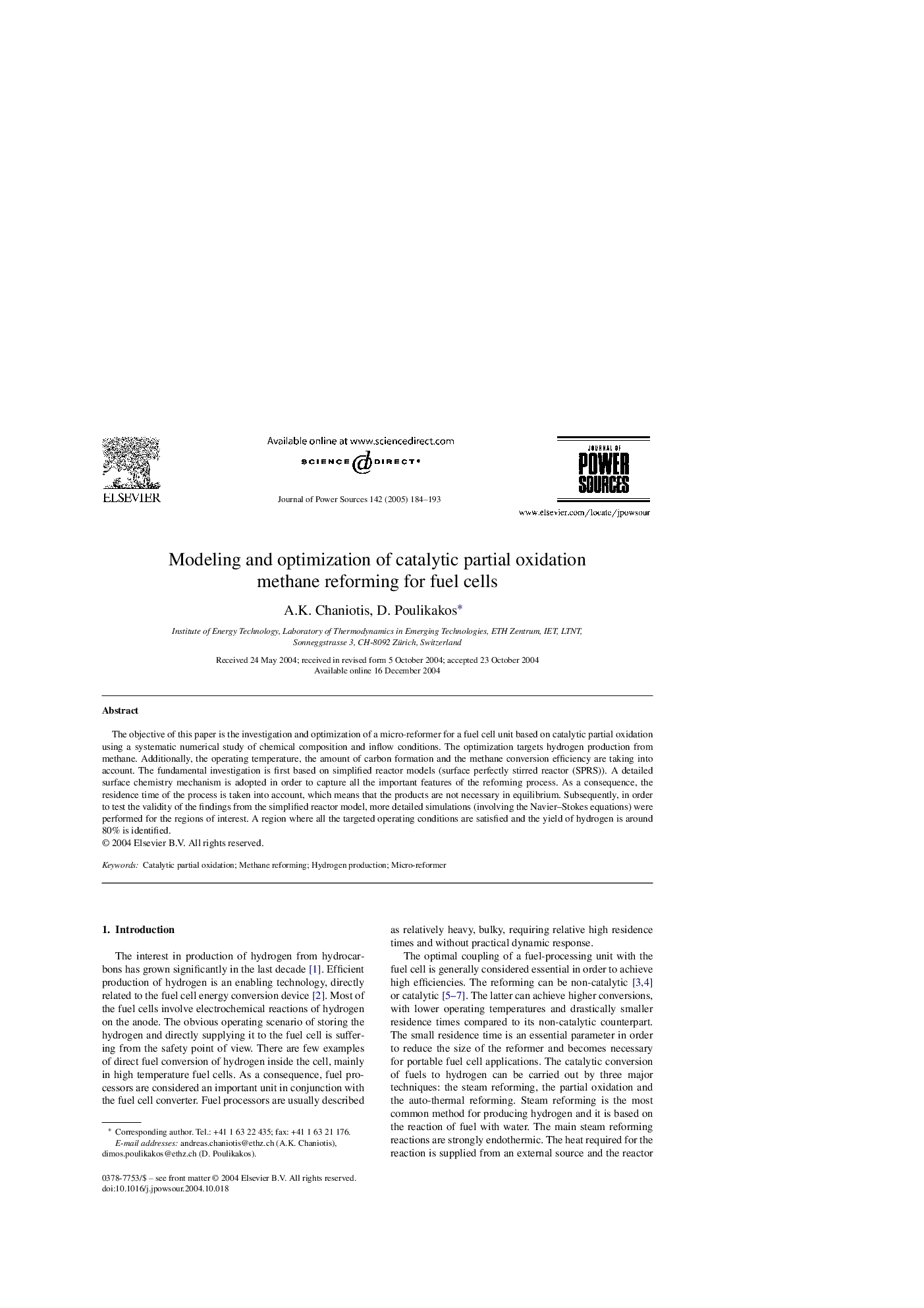| Article ID | Journal | Published Year | Pages | File Type |
|---|---|---|---|---|
| 9760431 | Journal of Power Sources | 2005 | 10 Pages |
Abstract
The objective of this paper is the investigation and optimization of a micro-reformer for a fuel cell unit based on catalytic partial oxidation using a systematic numerical study of chemical composition and inflow conditions. The optimization targets hydrogen production from methane. Additionally, the operating temperature, the amount of carbon formation and the methane conversion efficiency are taking into account. The fundamental investigation is first based on simplified reactor models (surface perfectly stirred reactor (SPRS)). A detailed surface chemistry mechanism is adopted in order to capture all the important features of the reforming process. As a consequence, the residence time of the process is taken into account, which means that the products are not necessary in equilibrium. Subsequently, in order to test the validity of the findings from the simplified reactor model, more detailed simulations (involving the Navier-Stokes equations) were performed for the regions of interest. A region where all the targeted operating conditions are satisfied and the yield of hydrogen is around 80% is identified.
Related Topics
Physical Sciences and Engineering
Chemistry
Electrochemistry
Authors
A.K. Chaniotis, D. Poulikakos,
